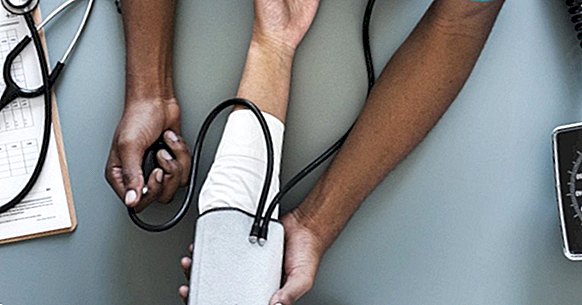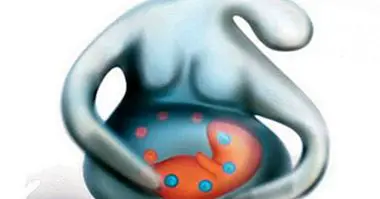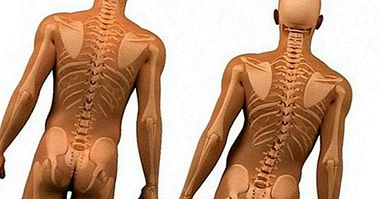This is the socio-health care for dependents
Throughout our development and growth, the vast majority of the population is acquiring a set of knowledge and skills through which we will be forging our identity, our way of seeing the world and how we interact with it. We are learning how to perform tasks that allow us an autonomous and independent subsistence.
However, there are people who for some reason have lost or have not sufficiently developed the necessary skills to perform day-to-day activities in a completely autonomous way. These people may need some kind of supervision, help or support in the different tasks of the day to day, an aid that can be provided in many cases by different types of social and health institution.
This requires professionals capable of responding to the needs of this sector of the population, which requires training in Health care to dependents in social institutions . It is on this subject that will be discussed throughout this article.
- Related article: "Clinical psychology: definition and functions of the clinical psychologist"
What is socio-health care for dependents?
To understand the type of care that must be offered from social institutions to dependents, first it is necessary to take into account what the concept of dependent person refers to .
We consider a person as a dependent when in a situation or state of generally permanent characteristics in which for some reason said person he has lost or seen reduced his faculties or capacities to lead a totally autonomous life , or when it has not been able to develop these capacities completely to levels that allow independent action and adaptability to environmental and social demands.
Dependence implies the need for attention, support or supervision by other people (or resources) outside the subject in order to perform day-to-day activities or to maintain a performance as autonomous as possible.
While usually speaking of dependence is usually thought of people with intellectual disabilities or some type of neurodegenerative disease, the fact is that within the concept of dependent person also include those subjects who have some degree of physical disability, sensory or whose vital activity is highly interfered with by the presence of some type of psychiatric problem.
In addition, the elderly or those with delicate health are also included that needs continuous assistance.
In some cases the person is in a situation of legal incapacitation and may be supervised by a relative or foundation, although it is not necessary to be legally incapacitated to have any degree of dependency .
Thus, socio-health support or care is not something that involves only a cognitive action but an integral assistance, which may include different types of actions depending on the needs, difficulties and / or potential of the subject. It is important to value that the intention of this type of services It is not only to mitigate possible deficits but also is responsible for maximizing and optimizing the strengths of the individual , as well as their quality of life.
It should also be borne in mind that when talking about social health care in social institutions, we refer to care that is offered in an organization or structure dedicated to the service and search for the well-being of users, and whose action can be carried out in multiple environments.
- Maybe you're interested: "How to find a psychologist to attend therapy: 7 tips"
Types of social institution for people with some type of dependency
With regard to the type of resource or social or socio-health institution offered to people in situations of dependency, we can find different categories with different objectives and types of treatments or supports offered . In this sense, some of the most common are the following.
1. Service for the prevention of dependency situations
These are devices whose main purpose is to try to prevent or limit the possibility or worsening of dependency situations in at-risk populations, the most obvious example being people with a congenital disability or people with advanced age. So, in this type of devices, we work with a population that either it does not have a dependence situation or it is sought that it does not limit more of what the autonomy of the person is already doing.
2. Hospitals and Day Centers
Probably the best-known types of service or socio-health institution, day centers and day hospitals have as their main objective the provide full and comprehensive attention to users in order to increase or maintain their level of autonomy, socio-community participation, capacity for self-management and in general their quality of life.
His biopsychosocial work usually includes the application of measures of rehabilitation, restoration or compensation of functions, guidance and advice for the user, facilitation and training of social and family bonding without having to specify an income, promote healthy habits, control the situation and provide support to both the end user and their environment.
3. Residential Care Centers
This last type of center, also highly known, is dedicated to offering a comprehensive socio-health care, but also for people who are admitted or located in the same service, in which they live (either permanently or temporarily).
In these centers, users perform different types of activities, workshops or therapies (depending on the case) that allow improving and / or preserving their autonomy and / or abilities, favoring their connection and socialization. An example of this type of service can be found in the Llar Residencia, in Cataluña (Hogar Residencia, in Spanish).
4. Other types of service
Although the three previous ones are some of the most usual ones, it is also worth mentioning the existence of many other types of care services for dependents. Among them we can find telecare service or home help .
Likewise, and at a more comprehensive health level, we can find various services within the public health portfolio, such as units of high psychiatric dependency or admission to acute or sub-acute units, neuropsychiatry or psychogeriatrics.
Degree of dependency and activities from which they are analyzed
It must be borne in mind that in order to offer quality health care to dependent persons it is necessary first of all to know what their needs are and to what extent they present some kind of dependency.
In this sense it will be necessary that a professional with the appropriate training can assess the subject , for which it will use one or several questionnaires and the observation of the subject as well as the characteristics and reports of their life situation and environment. With this, a score will be obtained in the Rating Scales of the Unit that will serve to determine the type or degree of dependence of the person in question.
The type of activities that are analyzed are usually the basic activities of daily life: nutrition, hygiene, sleep, toilet training, mobility and displacement, domestic tasks, capacity to maintain the state of health, capacity for decision making . As well it is taken into account if it is needed for example of help or external guide to carry out these actions.
Based on the scale we have seen, we can get three types of dependence: Grade I or moderate in which the subject needs some punctual help to be autonomous, Grade II or severe in which although a caregiver is not needed permanent it is necessary to help several times a day to perform certain basic activities and Grade III or great dependence in which the subject needs a caregiver, supervision or continued help in their day to day.
Professionals involved
Another factor to take into account is that the care of a dependent person requires the collaboration of different professionals from various branches, both health and social .
The specific type of professionals that each person will need may vary depending on the case, but in general terms we can find doctors (of any branch, be it neurology, phoniatrics, cardiology, endocrinology, immunology ...), nurses, psychologists, assistants, physiotherapists, speech therapists , occupational therapists, social workers, educators, teachers and pedagogues (and not only in the case of children) and in some cases even lawyers.
All of them must coordinate their actions to offer comprehensive care that takes into account the needs, potential and difficulties of the dependent person in order to improve their quality of life as much as possible.
Socio-health intervention
Although the different professionals involved will work focusing on their specialty in order to help the subject, in general terms we can determine the general nature of the main task of social care for dependents in social institutions.
The performance of professionals is aimed at the development and implementation of programs aimed at providing assistance that allows the subject to carry out basic activities with which it has difficulties, the rehabilitation or compensation of systems, capacities and functions, the incorporation of the subject to social participation and to link with other people and education and psychoeducation directed both at the subject and at his / her surroundings in order to face possible difficulties and improve the level of life and the autonomy of the subject.
Within this action include the approach of therapies and activities aimed at cognitive stimulation, cognitive restructuring of distorted beliefs, the use of occupational therapy to improve functionality in basic activities, health promotion and prevention of damage , the adherence to treatments, if any, the management of stress or emotions or the improvement of social participation through various activities and training, among many others.
All this always maintaining an ethical line in which dignity, confidentiality and respect prevail to the capabilities and independence of the subject, at the same time that a warm and comfortable environment is generated and the maximum benefit is sought for the subject and to avoid as much as possible any damage produced by the care action itself.
Bibliographic references:
- Institute of Training and Social Studies (IFES). Territorial Directorate of Andalusia. (2010). Health care to dependents in social institutions. Training Module 1. Support in the Organization of Interventions in the Institutional Scope. Training Unit 1. Support in Reception and Reception in Institutions of Dependent Persons. Andalusia, Spain.



















